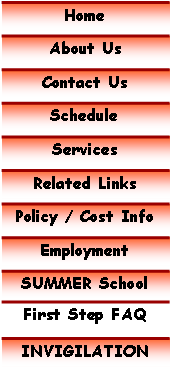
5 Essential Accounting Practices for Small Business Success
When it comes to accounting, mastering the fundamentals is crucial not only for students but also for small business owners. Accounting is a field that requires precision, attention to detail, and a solid understanding of financial principles. For students looking for an edge in their studies, turning to an accounting assignment helper can provide the support needed to excel. For small business owners, understanding these essentials is key to sustaining a thriving enterprise. This article will cover five essential accounting practices that benefit both students and entrepreneurs, guiding you toward success in academic and business endeavors.
1. Maintain Accurate and Timely Financial Records
One of the foundational pillars of effective accounting is maintaining accurate and timely financial records. Whether you're a student tackling complex accounting problems or a small business owner managing your company’s finances, keeping detailed and up-to-date records is essential. Students often struggle with the large volume of information they need to process, and failing to organize their notes or calculations can lead to mistakes in their assignments. Using the services of an accounting assignment helper can prevent such errors and help clarify complex accounting concepts.
Similarly, for business owners, sloppy bookkeeping can lead to missed tax deadlines, inaccurate financial statements, and poor business decisions. Proper record-keeping allows you to track expenses, revenue, and profits, making tax season less stressful and enabling more informed decisions. Tools like accounting software can simplify this process, providing templates for invoices, expense tracking, and financial reports.
An important tip is to set a regular schedule—weekly or monthly—to review and update your financial records. Doing this consistently ensures that nothing slips through the cracks, and both students and business owners stay on top of their financial game. In the business world, the small habit of maintaining clean records can help businesses stay compliant with legal obligations, reduce audit risks, and improve cash flow management.
2. Separate Personal and Business Finances
Students studying accounting are often taught the importance of separating personal and business finances. However, small business owners sometimes overlook this practice, especially when their company is just starting. Combining personal and business finances can result in confusion during tax season and lead to difficulties in understanding the financial health of the business.
To avoid this pitfall, open a dedicated business bank account and apply for a business credit card. Not only does this make bookkeeping easier, but it also creates a clear distinction between personal and business expenses, which is essential for tax deductions and business growth. You can quickly spot business trends, know where your money is going, and have a clearer understanding of how profitable your business truly is. For students, separating academic-related finances from personal expenses can serve as good practice for real-world accounting.
The lesson is simple but vital: separate your finances. The ability to differentiate between personal and professional spending is not only an accounting principle but a life lesson that will serve you well beyond your academic years. It provides clearer insights and helps in analyzing your true financial standing.
3. Implement a Budgeting System
Budgeting is an essential accounting practice for both students and business owners. For students, learning how to create a personal budget based on academic expenses is a valuable skill that will translate into their professional lives. A well-maintained budget helps track spending habits, control unnecessary expenses, and allocate resources efficiently.
Small businesses, on the other hand, need to implement a more comprehensive budgeting system. A well-crafted budget will include projections for future revenue, expense categories, and savings for unforeseen expenses. It serves as a financial roadmap, guiding the business toward its goals and ensuring that there are sufficient funds to cover day-to-day operations and growth opportunities.
Creating a budget also helps businesses anticipate financial challenges, allowing them to make informed decisions when it comes to scaling up operations or investing in new ventures. Budgeting gives clarity to both short-term and long-term financial planning and helps prevent overspending.
Creating a budget also helps businesses anticipate financial challenges, allowing them to make informed decisions when it comes to scaling up operations or investing in new ventures. Budgeting gives clarity to both short-term and long-term financial planning and helps prevent overspending.
4. Monitor Cash Flow Regularly
Cash flow is the lifeblood of any business, and monitoring it should be a priority. For students learning accounting, understanding cash flow helps when working on case studies or assignments focused on business finance. Knowing how money moves in and out of a company is crucial for financial health.
Business owners must regularly monitor cash flow to ensure they have enough liquidity to cover operational expenses. This includes understanding receivables (what customers owe you) and payables (what you owe suppliers). By keeping a close eye on cash flow, businesses can avoid running into financial trouble that could affect operations.
Monitoring cash flow not only keeps your business afloat but also helps you make future projections and set realistic financial goals. Establishing a reliable cash flow monitoring system, like a spreadsheet or specialized software, can make the process easier.
5. Seek Professional Help When Needed
Both students and small business owners should understand that seeking professional help isn’t a sign of weakness but a strategic move. Students may feel overwhelmed by complicated accounting concepts or tight deadlines, and that's where an accounting assignment helper can be of immense value. Similarly, small businesses might need the expertise of a certified accountant to manage more complex financial tasks, such as tax filing or auditing.
Outsourcing certain accounting tasks or consulting with professionals allows you to focus on other essential aspects of your studies or business, ensuring that financial management is in capable hands.
List of Key Practices:
- Maintain accurate and timely records
- Separate personal and business finances
- Implement a budgeting system
- Monitor cash flow regularly
- Seek professional help when needed
Conclusion
Mastering these essential accounting practices is crucial for both students aiming to excel in their studies and small business owners striving for financial success. By maintaining accurate financial records, separating personal and business finances, implementing a solid budgeting system, and regularly monitoring cash flow, you can set the foundation for long-term stability. Moreover, knowing when to seek professional help—whether you're a student in need of an accounting assignment helper or a business owner looking for financial expertise—ensures that you make informed decisions that propel you toward your goals. Accounting is not just about numbers; it's about strategic thinking, responsibility, and ensuring a strong future for your academic or business endeavors.













